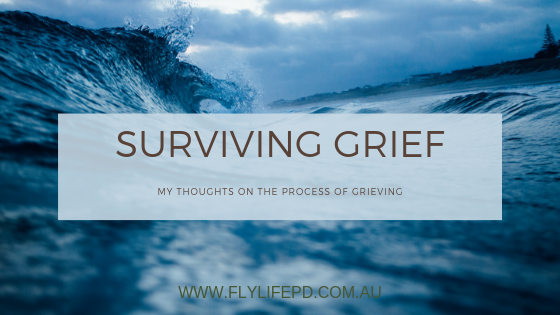I have another job besides my Fly Life Personal Development coaching. Today is my first day back at work after 12 months maternity leave. I know, starting back on a Friday is weird. But that’s just how it worked out with my leave dates. And I’m actually kinda glad… only one day of shock to the system, then a few days to recover. I’ll be able to do one day of work and then come home and open a bottle of wine “because it’s Friday and it’s been a big week!”

I love my job. But it’s not an easy job. It requires a lot of heart, a lot of brain power, and a lot of time. There’s always more work to do than people or hours available. You get it, right? It’s the same ol’ story everywhere.
Whenever there’s extra work to be done, or a new challenge to be taken on, it’s like my fingers are magnetised to the ceiling. My hand shoots up and I’m all, “pick me, pick me!” And then they pick me, and a little bit of me feels needed and important, but the rest of me feels like “ohhhh shit… what have I done?” I think of all my other commitments that I’ll have to neglect now… and the stress starts to build…
The spiral of doom
Have you been there? Whether you volunteer for the extra workload or just do it out of necessity, it can very quickly get out of control. You start coming in early or staying late just to try and get ahead. You bring work home, kidding yourself that you’ll spend time with your family while getting that task finished. Your conversations all start to centre on work: how busy you are, how stressed you feel, this problem you’re working on, the slackers who are dragging your team down…
You took on the extra work because it needed to be done and you knew you could do it. But you didn’t sign up to have it snowball like this. You didn’t want it to take over your whole life. And you certainly never planned to end up feeling anxious, depressed, and stuck in a job that’s sucking the life out of you. You loved it in the beginning… so how did it end up like this?
Regain some work life balance
If you know you’re already on this path, you need to take action. Once you’re feeling cynical and resentful, you’re possibly already burnt out, and that’s hard to recover from (but can be done).
So how can you regain some work life balance? Here are some ideas:
Examine your values
Make a list of your top five values. What do you value most in life, with number one being the highest priority.
Now, list the top five things that use up your time and energy.
Do the two lists match up? If not, it’s time to start thinking about what adjustments you can make.
Visual reminders

Create a little photo board or collage of your highest values. It might be a picture of your family, your dog, or something that symbolises health and wellbeing to you. Whatever it is that listed highest on your list of values, make sure it is visually prominent.
Now, whether it’s a digital image or a printed one, put it somewhere you’ll see it frequently throughout your day.
Every time you start to get sucked into the temptation to stay back late and get a bit more done, glance at that picture and reassess whether you really need to do the extra work today.
Let go of the perfectionism
I know… it’s easier if you just do it yourself. At least then you know it’s done right… right? But you’re trying so hard to do your work perfectly that you’re neglecting other areas of your life that are equally or more important to you. And that ain’t right!
The key here is to let go of your perfectionism. I’m not saying drop your standards completely – I’m a huge fan of maintaining a level of excellence in my work. But pick your battles. If something has been done differently to how you would do it, consider these things:
- Is this a terrible outcome for the customer?
- Will the business/organisation be negatively impacted by how this has been done?
- Is this going to matter in a years’ time? Or even in a weeks’ time?
- Does it affect you directly?
- Have you got more important things to be worrying about?
Now sure, if you ask those questions and you’re still uncomfortable with how the job has been done, you might need to get involved. But wherever possible, let it go and deal with your more important priorities.
Be effective

Sure, you’ve got mates at work and friendship is important. But if you’re spending half your day chatting with your work wife, and then stressing about how overloaded you are, there’s something wrong. It’s so easy to get carried away with a good convo, and before you know it, it’s lunch time and you haven’t achieved much yet. And now you’ll probably have to work late to finish everything off.
Track your time to see where you’re losing minutes. Keep a printed table on your desk and jot down what you work on in each half-hour slot. This can help keep you focused and accountable. (Contact me if you want me to email you the simple template I use for this – it’s free).
If you start to get caught up in a great conversation, ask if you can continue it over lunch later. This has the added benefit of ensuring you’ll take a proper lunch break.
Plan your day
Take 10-15 minutes at the end of each day to make a list of your priority tasks for tomorrow. Be realistic and don’t overload your day – you want to leave enough space for those extra things that pop up.
This activity has two main benefits.
- It gets that item off your brain so you can leave it in the office rather than taking it home and stressing about it.
- You’ll be focused right from the start of your day when you come in tomorrow.
Be present

Whether you’re at work or at home, be there. Thinking about all your home stuff while you’re meant to be working will just slow you down and lead to stress. And thinking about work stuff while you’re meant to be enjoying your family time will suck all the joy out of you.
Treat your commute to/from work as your cross-over zone. By the time you get to your destination, aim to set aside all the worries from the previous one.
It’s not always possible to completely switch off. Thoughts will pop into your head that you need to remember for when you get back to work, or for when you get home. Write them in a notebook or in the notes section of your phone. Getting it written down allows you to let go of it for now and continue being present where you are.
Chat with your boss
Does this scenario sound familiar? Home life is stressful. Work is out of control. You’re feeling like a complete failure because you can’t keep up with it all. Someone has just had a go at you, and you can’t hold back anymore. You’re ugly crying in front of your boss.
Happens to the best of us.
But it doesn’t have to get to this point before you let your boss know you need to pull back a bit. Choose a moment when you’re calm and you’ve had time to prepare your thoughts. Explain how it’s got to this point and take responsibility for taking on more than you could manage. Assure your boss that your work is important to you, and you want to maintain a high quality of work. Be assertive and set your boundaries. Make suggestions on how to resolve the workload problem. Are there processes that could be improved? Other people that could help? Your boss is probably overloaded themselves, so wherever possible, go to them with suggestions or solutions, not just the problem.
What have I missed?
I need to be honest with you: I am NOT an experienced expert on achieving a work life balance. This is something I’ve struggled with for many years. These ARE tactics that I have used and that have been effective, but I’m sure there are others that I haven’t considered. I’d love to hear how YOU achieve a work life balance. Tell me in the comments.
If work is really sucking the life out of you though, or you’ve hit complete burnout, I can help. Sometimes it’s more than just a matter of adjusting the balance. You may need a complete change, or a reset of your values and motivations. You don’t have to stay stuck where you are, feeling out of control, unmotivated, cynical about your job, and dreading Monday mornings. Contact me today for a free chat about what’s going on, and let’s see if we can get you excited about life again.






[…] makes it so tricky is that my work is important to me too. But is it MORE important than family and health? Nope. So why does it get more energy than those […]